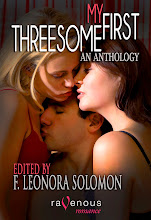Business. Even artists need to put on their businessman's hat if they want to do more than create in a vacuum. Writers are not exempt. Recent events in the world of popular fiction (i.e., Cassie Edwards' public trial on charges of plagiarism) and the furor and bruhaha that has ensued, have left me with the undeniable conclusion that too many writers have their heads in the sand. Are are just dumb, to be painfully blunt.
Millions (Ok. so maybe, just maybe, that is an exaggeration, but given the number of posts I personally have read on my few writers' loops, perhaps not) of writers are pondering, arguing, debating the issues of plagiarism, and the trickle down legal theories of copyright and copyright infringement.
Sadly, no one seems to have a clue. Not as to what they are, or even the fact that the two concepts are not just some quaint publishing tradition or practice, but that they are legal terms with very complex legal definitions.
If I write another response to an email post that says well, it wasn't so bad; after all, she didn't steal from another romance writer....or it's unfair because she stole from someone who makes a career and money off of their non-fiction books (?) .... or what are we supposed to do if we can't research?
Since when did research mean lift huge chunks of someone else's writing on a subject that you want to include in your book, plunk it into your writing and neglect to tell anyone that, whoops, no, you didn't really think I wrote that, did you, that's just research?
OK. Granted, I work at a law firm where we do publishing. But I knew a shitload more about this stuff even before I did. Because, well, it mattered to me as a writer to know WHAT THE FUCK I was getting myself into, business-wise.
If you DON'T know that plagiarism is not stealing ideas, or a plot, or a title, or a character's name (and if you try to steal Luke Skyewalker, Harry Potter, Glinda the Good Witch or Scarlett O'Hara, it just goes to show you're as dumb as a box of rocks, anyway). You can only steal an individual's expression of her ideas, or her expressed execution of her plot. And changing a few words won't mean you're not stealing. The law (surprise, surprise) isn't that easy to get around.
And as for copyright. You have a copyright when you write something. You can file with the copyright office and protect yourself further. You will always have the copyright in your book until you've been dead for 70 years and then who gives a rat's ass anyway. When they said "you can't take it with you", they meant copyrights too. Your publisher never owns your book. They own specific, pre-agreed upon rights in and to your book for a specific time frame and purposes that are outlined in the contract. Did you read it? Did you UNDERSTAND it? Bet you signed it anyway, didn't you, you dolt!
Get an agent. Get a laywer. Get a brain.
If you don't know what you're doing you are as bad as a car mechanic who doesn't know his ass from his exhaust pipe. And you wouldn't pay him, would you?
Writers study their craft (and it sounds just as bad as when actors say it) and they worry, endlessly, ceaselessly, about facts and details, comma placement, point of view, conflict, dialogue, storyboarding. But do they worry about copyright infringement or plagiarism? Apparently not.
And an awful lot of them don't seem to worry about marketing techniques, promotional tools, royalty calculations, business plans, or branding, either. They do worry about MySpace (how many friends do I have?), Blogging (today I'm going to post pictures and chat about my cat/dog/horse/birds/house/kids/DH) or website (ain't it purty?).
We're in a business, folks. Get with the program. Learn what you need to know. And then learn that. Learn about the law as it relates to writers and publishing. Know what you own, because if you don't how can you know what you are selling? Know how you are percieved (and Ms. Edwards' response that she didn't know she was supposed to credit someone when plopping chunks of their writing into her books and letting everyone assume she wrote it is stupid for three reasons: 1. She didn't apparently know that it was stealing; 2. She didn't know that giving someone credit for something that you stole doesn't absolve you of the theft; and 3. She didn't know that it was crappy reading! (The ultimate sin - according to most posts, the worst part of it was that what she stole was dull.)because perception can make or break you. Even if you're good (or BAD) at what you do. Just look at politics.
And if you have no problem with stealing, as long as it doesn't cost someone else money? If you don't have a problem stealing from an author who sweat the same blood and tears (or, rather, apparently more, since they didn't get lazy and steal from someone else) as long as they aren't a competitor of yours, well, maybe the legal definition of plagiarism isn't your biggest problem.
Maybe the definition of "ethical" is.
Go ahead. Look it up. I dare you.
Subscribe to:
Post Comments (Atom)








No comments:
Post a Comment